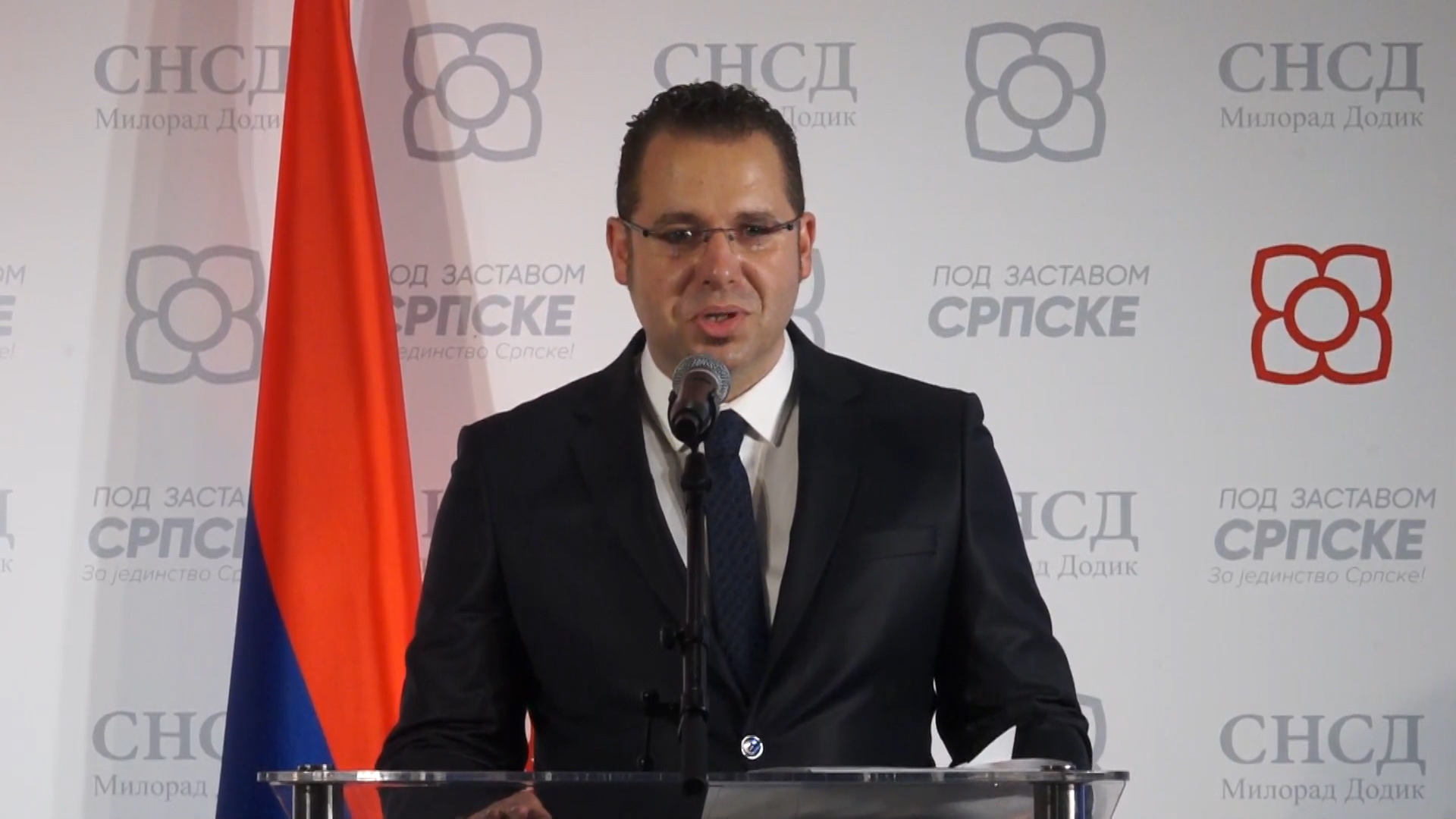
The Bonn powers, invoked by the High Representative for BiH Valentin Inzko, are illegal and have no basis in international law, nor will anyone in Bosnia's Republika Srpska (RS) entity respect them, said the spokesperson for the Alliance of Independent Social Democrats (SNSD), Radovan Kovacevic, commenting on Inzko's announcement that he would impose a Law Against the Denial of Srebrenica Genocide, Srna news agency reported Monday.
The spokesperson for the biggest Serb nationalist party in the RS entity said Inzko's intention of imposing such a law is unacceptable.
"The High Representative has no authority to propose or impose any laws. This is a clear and unambiguous position of political representatives from the RS. Nobody in Republika Srpska will respect something like that," Kovacevic told "Novosti".
He noted that the High Representative's function was clearly defined by the Annex 10 of the Dayton Peace Agreement that ended the 1992-1995 war in Bosnia and that it concerns the implementation of the civilian aspect of the Agreement and the cooperation between its two entities.
Inzko stated recently that he has a Draft Law ready in his drawer, and that he will surely submit it to the Parliament.
"They have the last chance to accept it. If they don't adopt the Law, I will react," Inzko said, adding that the deadline is by July 11, the anniversary of the Srebrenica genocide.
Inzko's intervention could be the use of the so-called Bonn powers allowing him to impose, amend or annul any law in the country and to sanction any BiH politician for disrespecting the Dayton Agreement or threatening peace.
During the 1992-1995 war for the country's independence from the former Yugoslavia, Bosnia lost over 100,000 people, over 8,000 of which were lost in July 1995 in Srebrenica, when Bosnian Serb forces, which received financial and logistical support both from Serbian authorities and individuals during the war, overrun the then UN-protected zone of Srebrenica.
Their bodies were subsequently buried in primary, secondary, and even tertiary mass graves in an attempt to hide the crimes and make identification of victims impossible. Thanks to state-of-the-art DNA labs, all the bodies that were buried at the Memorial Centre were positively identified.
The bodies of victims that were not identified are still held in morgues waiting for their relatives to give their DNA samples. unfortunately, many have died before their loved ones were exhumated making it impossible to identify a small number of skeletal remains.
The International Criminal Tribunal (ICTY) for the Former Yugoslavia and the International Court of Justice later ruled that the massacre was an act of genocide.
International and regional courts have sentenced 45 people for what happened in Srebrenica to a total of more than 700 years behind bars.
Those who the ICTY sentenced to life imprisonment are Ljubisa Beara, Zdravko Tolimir, and Vujadin Popovic. But the most well-known alleged masterminds of what happened in Srebrenica are former Bosnian Serb politician Radovan Karadzic and ex Bosnian Serb general Ratko Mladic, and both have been sentenced for it but have appealed.
The first burial of genocide victims began at the Potocari Memorial Center in 2003 when three funerals were held that year and 969 genocide victims were buried.
Kakvo je tvoje mišljenje o ovome?
Učestvuj u diskusiji ili pročitaj komentare





 Srbija
Srbija
 Hrvatska
Hrvatska
 Slovenija
Slovenija







